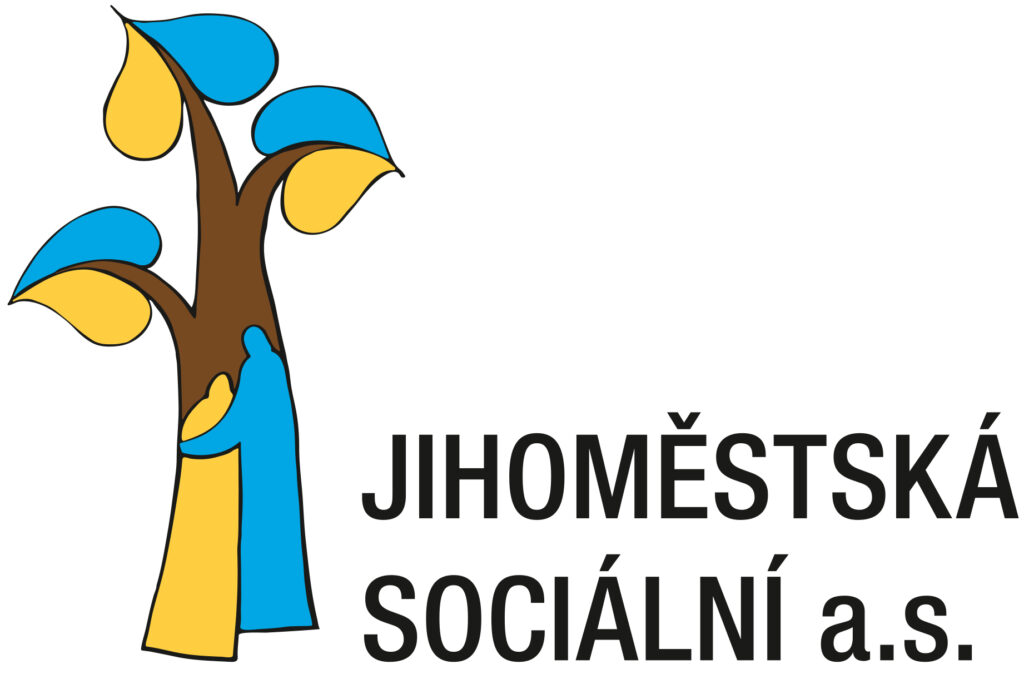Jihoměstská sociální a.s., Czech Republic
LEAD PARTNER
Jihoměstská sociální a.s. is an established professional provider of social services for seniors and persons with disabilities on the territory of the Municipal District Prague 11. The organization was founded in 2008, it is a joint-stock company and was founded by the Municipal District Prague 11 (therefore is can be considered a public entity). Jihoměstská sociální a.s. provides two residential social services, a home for the elderly, and respite care.
The mission of the Home for the Elderly Jižní Město is to provide accommodation, meals, and social and health services to seniors who, due to their age, health, and social situation, are dependent on the help of another person and who cannot live
permanently in their natural environment. The target group is seniors who have reached at least 60 years of age and who are unable to provide for their basic living needs in their natural social environment (home), need constant help from another person and this help cannot be provided with the help of family and social services in the field and outpatient form.

Medicalscan Slovakia sro, Slovakia
MEDICALSCAN, as an EHDEN-certified health data analyst and developer SME, is a healthcare information technology company. We specialize in big data analysis as well as administration and maintenance of medical and pharmaceutical databases with fourteen years of deep professional experience.
Our primary goal is to help healthcare professionals and our clients understand real-world healthcare data (RWD) by collecting, analyzing, and professionally interpreting it and developing professional and patient training programs to enhance disease and patient conditions.

NOWA TRAINING BERATUNG PROJEKTMANAGEMENT, Austria
NOWA is a regional association specializing in training, counseling, and project management. Its members are the City of Graz and the communities around Graz. NOWA is an expert organization developing and implementing innovative strategies for the promotion of equal opportunities in adult education, regional development, and the economy. NOWA’s core competency is the creation and implementation of innovative learning methods, focusing on groups of special interest. i.e. the elderly.
NOWA has a strong gender-sensitive approach, thus the activities of NOWA always emphasize equality between women and men, which is also an important issue for the target group in the project. NOWA offers regular ICT courses for people in the after-work phase (around 60+) in close cooperation with the City of Graz. The expertise of NOWA is reflected by its active involvement in the strategy for LLL. NOWA has also extensive experience in co-creating with business actors, seniors, and multiple stakeholders: it provides counseling to integrate equality orientation, diversity management, and active aging, or health aspects of their employment policies.

Åpenhet, Norway
Åpenhet specializes in fact-based policy-making and the dissemination of knowledge in an interactive and visually attractive way. They will help raise awareness and increase the reach of the activities. Åpenhet will collect, process and disseminate data and information to support the project objectives and deliverables. Åpenhet has the experience and tools needed to promote the project and develop accessible user-friendly educational or advocacy tools. Their solutions for data collection and digital storytelling will help engage users and keep the deliverables relevant also long after the project has ended. Åpenhet will facilitate bringing Norwegian experts and experiences into the project and share project findings and learnings with stakeholders across Europe.

University of Košice, Slovakia
ASSOCIATED PARTNER
The Department of Social and Behavioural Medicine of the Faculty of Medicine of PJ Safarik University in Kosice focuses its scientific and research activities on social and behavioral determinants of health and quality of life of disadvantaged groups of the population, mainly chronically ill, ethnic minorities, and older people. Particular interest is put in exploring the biobehavioural and psychosocial factors that promote self-management, coping strategies, adherence, and adjustment to illness in patients with chronic illness. The transfer of research findings into recommendations for policymakers, especially in the context of integrated care and support for public health systems is an important component.


